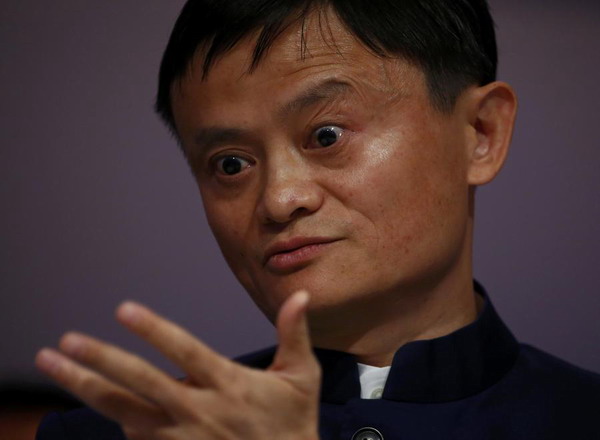China's signal of innovation detected in Davos
(Xinhua) Updated: 2015-01-25 12:43Two months ago, Li visited Qingyanliu Village, Yiwu City, in Zhejiang Province and he mentioned again the China No 1 E-commerce village, also known as the Taobao village, in his Davos remarks.
"In the village were some 700 households and over 2,800 registered online stores. Each day, more than 30 million items of various sorts were sold to different parts of the world," Li said. "The story of the village speaks vividly of the hard-working Chinese people actively engaged in entrepreneurship."
In an interview with Xinhua, Jack Ma expounded on Alibaba's e-commerce project in rural areas and said "it would be an honor for Alibaba if we could help rural residents become richer and help rural economy and agricultural industry grow better with internet technologies."
As far as high-tech enterprises like Huawei is concerned, innovation is nothing but its lifeline.
One week before its CEO's arrival at Davos, Huawei released its annual performance report for 2014. It showed the company achieved a 20-percent increase in its global sales revenue in 2014, which is estimated to be 289 billion yuan (about $46.5 billion).
Speaking at the WEF, Huawei's helmsman Ren Zhengfei said he believed that the Chinese economy should pursue high-quality growth in the future and agreements are also reached inside Huawei on a growth route away from low price and low quality. "Otherwise the country's strategic competitiveness would be ruined in 20 years," he said.
To sustain high-quality development, the key lies in innovation.
In a bid to build a competitive advantage, the Chinese tech giant has maintained a policy of "future-oriented investment." According to its latest annual report, it allocated about 40 billion yuan (about $6.44 billion) in fund for R&D in 2014 alone, up 28 percent year-on-year and its accumulated funding for R&D in the last decade totaled 188 billion yuan (about $30.3 billion).
"China has 1.3 billion people, a 900-million workforce, and over 70 million enterprises and self-employed businesses. Our people are hard-working and talented. If we could activate every cell in society, the economy of China as a whole will brim with more vigor and gather stronger power for growth," said Li Keqiang in his much-highlighted speech at Davos.
The Chinese premier also compared mass entrepreneurship and innovation to a "gold mine" that provides constant source of creativity and wealth.
These aspiring Chinese enterprises, as shining as gold, have huge potentials and will be a major force in bringing about a more rosy future for the Chinese economy.





